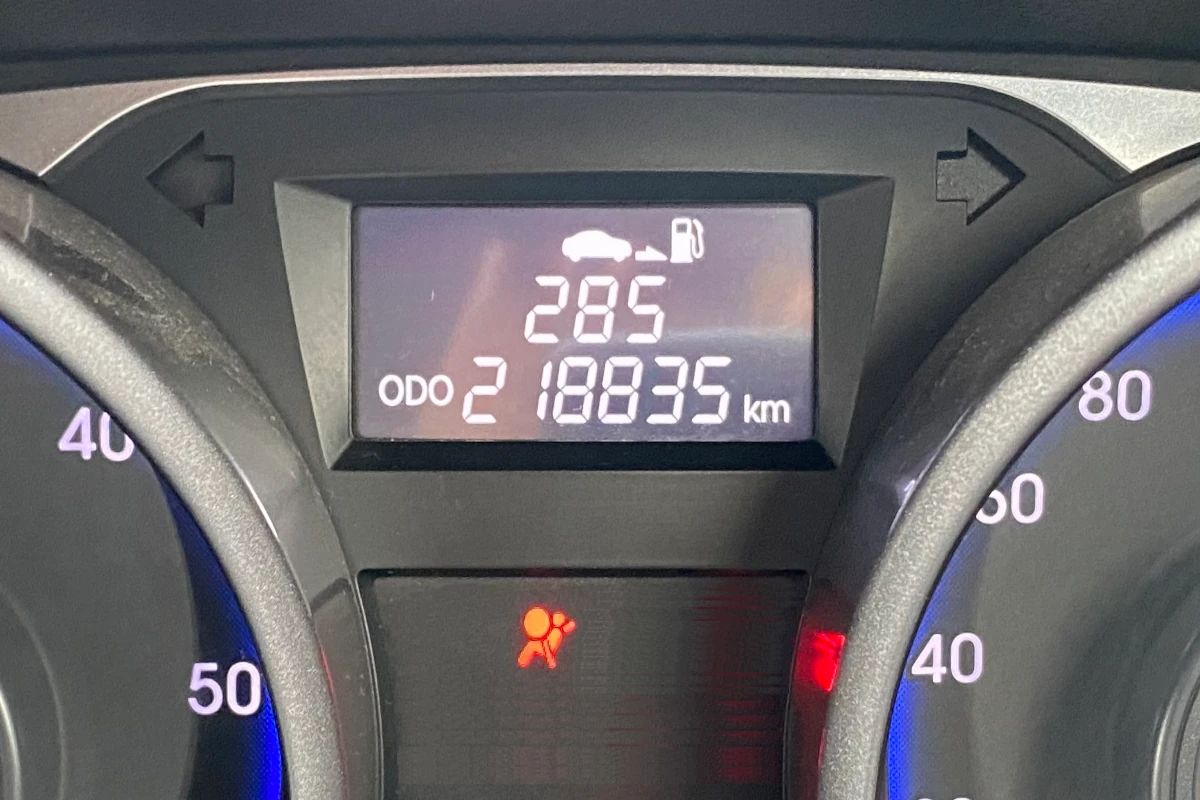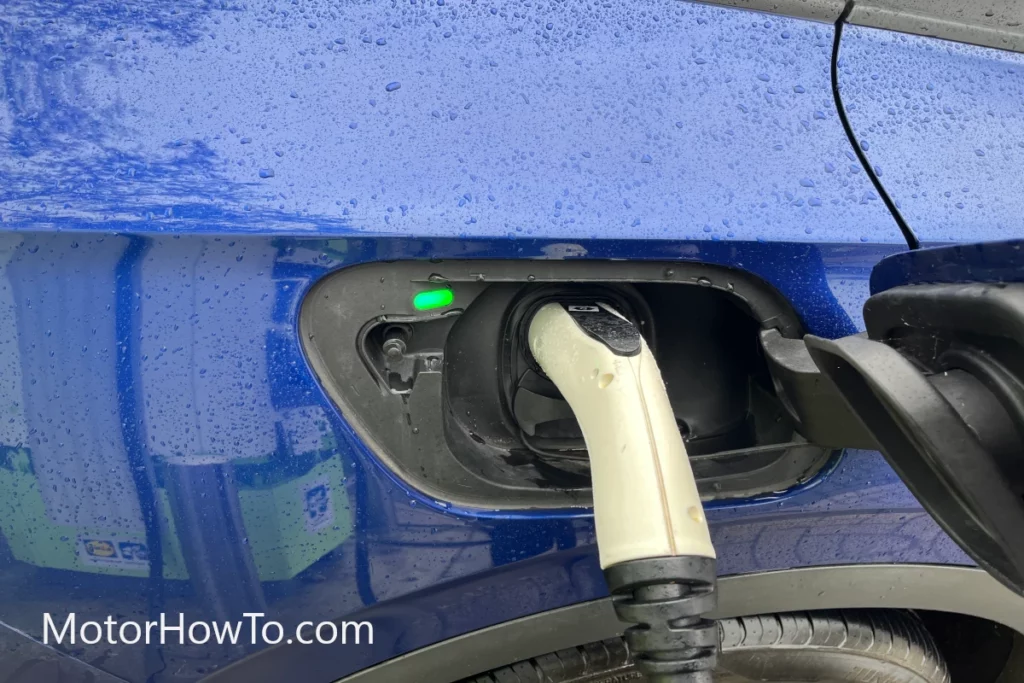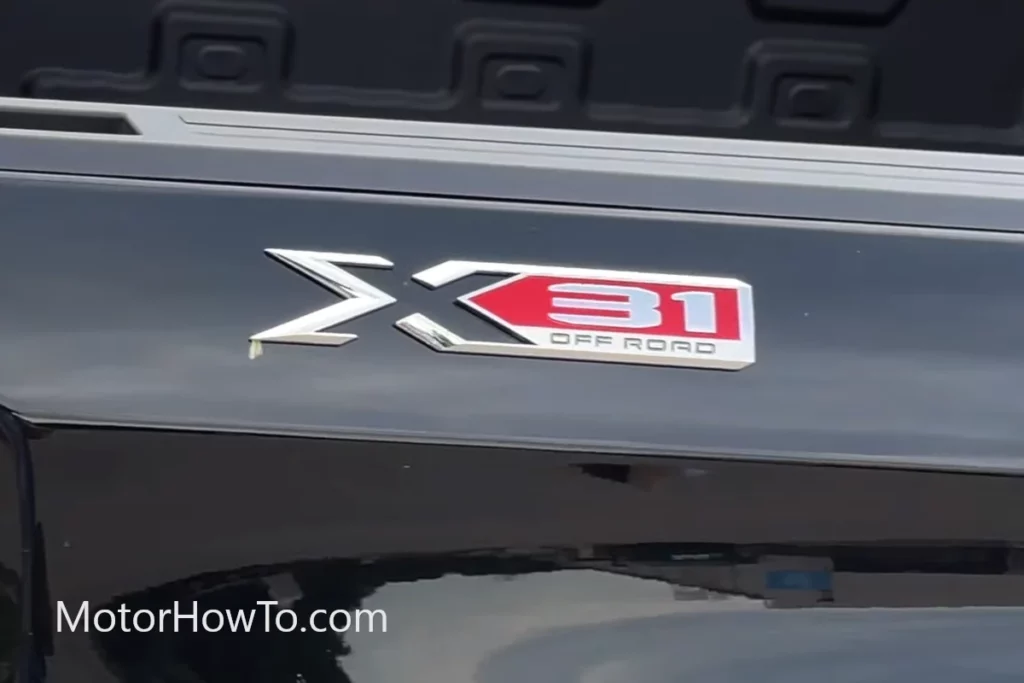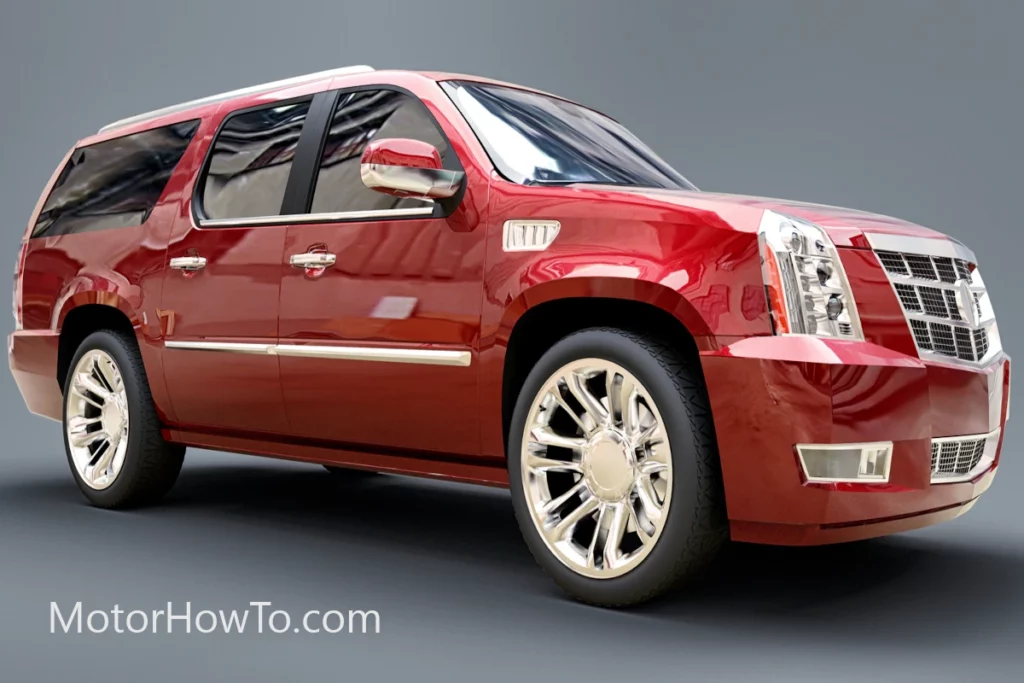There are plenty of different tests that vehicles usually have to go through because of how the country and the state care about whether or not your car is safe or is not a hazard to society.
Of course, one of the tests that you may have to go through is an emission test. But, while an emission test is important, you may be wondering if your SRS is related to your car’s emission.
So, can you still pass an emission test if your airbag light is on?
Emissions test with airbag light on
Your car will still pass an emission test regardless of whether or not the airbag light is on or if the airbag/SRS system is working. That’s because the car’s emissions have nothing to do with the airbag or the other components of the SRS. An emission test is only concerned with the car’s emissions.

While there are plenty of reasons why you can fail an emission test, what you should know is that your airbag light is not one of the reasons.
That’s because the emission test is most likely related to your engine and not to the car’s safety features. However, while you can pass an emission test with your airbag light on, a safety inspection is an entirely different story.
Related:
- Will Car Pass Inspection With TPMS Light On? (All States)
- Why Are Airbags So Expensive? (Guide)
- Will My Airbag Deploy If The Light Is On? (Read First)
Can I pass emissions with the airbag light on?
As a car owner, one of the many things that you need to know is that your car should be able to pass multiple tests in relation to its registration because the state and the entire nation makes it a point that your car is in working condition and that it is not a hazard to society. That said, one such test that you need to pass is the emission test.
In relation to the emission test, you are probably worrying about whether your car will pass this test if your vehicle has a few issues in relation to its different systems. One such system might be the airbag or the Secondary/Supplementary Restraint System or SRS. And we do know that whenever there is a problem with the airbag or the SRS, the airbag or SRS light will turn on.
So, if you do have a problem with your airbag or SRS, does it mean that this will have a bearing on your emission test results?
While you shouldn’t be happy about the fact that your SRS light is on (in fact, you should be worried), the good news is that there is nothing that will prevent you from passing your emission test if your only concern is your airbag light. The airbag light is not one of the factors that will cause you to fail your emission test.
The reason why your will still pass your emission test even with the airbag light is on is due to the fact that the airbag and the SRS are not related in any way to the car’s emissions. An emissions test focuses more on the emissions coming out of your car’s engine, and that means that this is more of a mechanical issue that is related to the car’s engine. On the other hand, the airbag light is a safety concern that is related to the electrical components of your SRS.
So, in a way, the two are entirely unrelated. That means that, as long as your car’s emissions are fine, you will still pass your emission test regardless of whether or not your airbags or the other components of the SRS are working properly.
What causes you to fail an emission test?
If the SRS light is not an issue that will fail you in your emission test, what are the possible causes if you still end up failing an emission test?
- You need to get your oil changed. So, if you fail your emission test, it is likely that you are past due for an oil change. That’s because a delayed oil change can cause your engine to produce dirty emissions because the oil in the engine is already dirty. However, a cleaner oil contains fewer hydrocarbons and allows your engine to produce cleaner emissions that are likely to pass an emission test.
- The fuel mixture is rich. A rich air-to-fuel mixture can also cause your car to fail an emission test because this means that your engine is burning more fuel than air. That means that the components in the emissions will be more likely to contain some of the impurities coming from the fuel.
- Faulty spark plugs. When the spark plugs have become worn out or faulty, this can lead to increased emissions because of how your engine won’t be able to completely combust the fuel and air.
- The air filter is dirty. A dirty or clogged air filter can also be a culprit when it comes to high levels of hydrocarbons found in your car’s emissions. As such, you need to make sure that the air filter is clean or unclogged to make sure you pass your emission test.
- The “check engine” light is on. So, while the airbag light will not cause you to fail an emission test, it’s a different story for the “check engine” light. That’s because the “check engine” light means that there is something wrong with the engine, such as when the oxygen sensor is faulty. And the minute that they see that your “check engine” light is on, your car will almost immediately fail the test.
Can I pass inspection with airbag light on?
So, while an emission test focuses almost entirely on your car’s emissions, a regular inspection is entirely different because this is a procedure that makes sure that your car conforms to the standards that govern safety and emissions. If that is the case, will your car pass a regular inspection if the airbag light is on?
It depends entirely on the jurisdiction because some states require your airbag or SRS to be working when it comes to regular inspection. That’s because, in some states, the airbag light is not a safety issue that needs to be addressed. However, there are some states that will automatically fail you the moment the inspector sees that your airbag light is on.
And even if you live in a state where the airbag light is not a safety issue, there is still a chance for you to fail the regular inspection. That’s because an airbag light that is turned on can lead to other issues that are important when it comes to safety. This is why some cars can still end up failing even if the state doesn’t care about whether or not the airbag light is on.
USA statewide inspection requirements
Below is the state-by-state information on the Inspection type (Safety inspection, Emissions test) & frequency your car needs to undergo:
| State | Inspection type & frequency | Inspection requirements |
|---|---|---|
| Alabama (AL) | Safety: Non-standard | – Safety inspection is only required prior to the sale, prior to the transfer of ownership, or when rebuilding salvaged vehicle. |
| Alaska (AK) | Not required | – Emissions tests were required but stopped in March 2012. |
| Arizona (AZ) | Emission: Every 2 years | – Emissions tests are done in Phoenix and Tucson metro areas only. |
| Arkansas (AR) | Not required | – The state encourages citizens to test their own vehicles for pollutants. Click here. |
| California (CA) | Emission: Every 2 years VIN: Non-standard | – Emissions tests are dependent on the area – Check ZIP here while smog check is required for all out-of-state vehicles. Emissions test for any newer vehicle up to 6 years old, hybrids, electric vehicles, motorcycles, trailers, natural-gas-powered vehicles heavier than 14,000 pounds, diesel-powered vehicles made before 1997, any vehicle made in or prior to 1975 is exempt. – VIN checks are required when registering an out-of-state vehicle. |
| Colorado (CO) | Emission: Every 2 years VIN: Non-standard | – Emission and smog tests are only required for Boulder, Denver, Broomfield, Douglas, and Jefferson, as well as parts of Adams, Larimer, Weld, and Arapahoe counties. Check the map. However, new cars up to 7 years old, all-electric vehicles, farm vehicles, motorcycles, or 1975 model years or older are exempt. – VIN checks are required when registering an out-of-state vehicle. |
| Connecticut (CT) | Emission: Every 2 years VIN: Non-standard | – Some safety inspections are required for commercial types of vehicles, like taxis, trailers, and driver-education cars. – Emission tests are required throughout the state and depend on the type of vehicle. Inspections however must be done by an authorized facility. – VIN checks are required when registering an out-of-state vehicle. |
| Delaware (DE) | Safety: Every 2 years Emission: Every 2 years | – Newer cars up to 5 years old are exempt from all tests. – Emissions tests for newer cars up to 5 years old or models manufactured before 1967 are exempt. |
| Florida (FL) | VIN: Non-standard | – VIN checks are required when registering an out-of-state vehicle. |
| Georgia (GA) | Emission: Every year | – Emissions testing is only required for some metro counties. Newer cars up to 3 years old and older cars above 25 years old are exempt, which includes motorcycles, RVs, diesel-powered vehicles, and motor homes. |
| Hawaii (HI) | Safety: Every Year | – Newer cars up to 2 years old are exempt and inspections need to be done at authorized facilities. |
| Idaho (ID) | Emission: Every 2 year VIN: Non-standard | – Emissions testing is only required for Ada and Canyon counties. – VIN checks are required when registering an out-of-state vehicle. |
| Illinois (IL) | Safety: Every 2 year Emission: Every 2 year VIN: Every 2 year | – Inspection every 2 years applies to vehicles in specific zip codes, including Chicago and St. Louis metro areas. – Newer cars up to 4 years or cars before 1967 are exempt |
| Indiana (IN) | Emission: Every 2 year VIN: Non-standard | – Emission testing every 2 years applies to vehicles in specific zip codes, including Lake County and Porter County – Inspections to be done at authorized service stations. – Cars built after 1976 are exempt from inspection. – VIN checks are required when registering an out-of-state vehicle. |
| Iowa (IA) | Not required | – Salvaged vehicles and the commercial trucking industry will need some form of testing |
| Kansas (KS) | VIN: Non-standard | – VIN checks are required when registering an out-of-state vehicle. |
| Kentucky (KY) | VIN: Non-standard | – VIN checks are required when registering an out-of-state vehicle. |
| Louisiana (LA) | Safety: Every year Emission: Every year | – Emission testing every year applies to vehicles in Baton Rouge metro parished |
| Maine (ME) | Safety: Every year Emission: Every year | – Emission testing every year applies to vehicles in Cumberland county |
| Maryland (MD) | Safety: Non-Standard Emission: Every 2 years | – Safety inspection is required only prior to a sale or transfer of vehicle ownership. – Emissions testing is required in the following county: Anne Arundel County, Baltimore City, Baltimore County, Calvert County, Carroll County, Cecil County, Charles County, Frederick County, Harford County, Howard County, Montgomery County, Prince George’s County, Queen Anne’s County and Washington County in Maryland. Emission testing is exempt for vehicles built-in 1976 to older, all-electric or diesel-powered, a farm vehicle, a motorcycle, a historic vehicle, or any of these other exemptions. |
| Massachusetts (MA) | Safety: Every year Emission: Every year | – Emission testing is for cars older than 15 years are exempt |
| Michigan (MI) | Not required | |
| Minnesota (MN) | Not required | |
| Mississippi (MS) | Not required | – Inspection is only required for vehicles with tinted windows |
| Missouri (MO) | Safety: Every 2 years Emission: Every 2 years | – Safety inspection for newer cars less than 5 years and historical plates are exempt Emissions testing is only required in St. Louis City and County, Franklin County, St. Charles County, and Jefferson County. |
| Montana (MT) | Not required | |
| Nebraska (NE) | Safety: Non-Standard Vin: Non-Standard | – Safety checks are required when registering an out-of-state vehicle but trailers, motorboats, salvaged vehicles, and some other types of vehicles are exempt. – VIN checks are required when registering an out-of-state vehicle. |
| Nevada (NV) | Safety: Every Year Emissions: Non-Standard Vin: Non-Standard | – Safety checks for newer vehicles less than 2 years old post-registration or built before 1968 including motorcycles and hybrids for the first five years are exempt – Emissions tests are only required in Las Vegas and Reno – VIN checks are required when registering an out-of-state vehicle. |
| New Hampshire (NH) | Safety: Every Year Emissions: Every Year Vin: Non-Standard | – Inspection is due the month of your birthday when your transfer or buy a new car – Emissions tests for cars built before 1996 are exempt |
| New Jersey (NJ) | Safety: Non-Standard Emissions: Every 2 Years | – Safety Inspection is only required for commercial vehicles – Emissions tests for vehicles less than 5 years are exempt. All commercial vehicles need to be tested every year. However, motorcycles, farm vehicles, collector and historic vehicles, trailers, mopeds, and certain diesel vehicles based on size and model year are exempt. |
| New Mexico (NM) | Emissions: Every 2 years Vin: Non-Standard | – Emissions testing is only required for Bernalillo County and surrounding Albuquerque areas. Vehicles from 1982 or earlier, all-electric cars and diesel cars are exempt – VIN checks are required when registering an out-of-state vehicle. |
| New York (NY) | Safety: Every Year Emissions: Every Year | – Emission testing for vehicles 26 years or older and two model years or younger are exempt |
| North Carolina (NC) | Safety: Every Year Emissions: Every Year | – Safety inspection for car models 35 years or older are exempt – Emissions testing is done in 48 countries (out of 100) while cars manufactured on or before 1995 are exempt, in addition to newer cars within 3 model years and less than 70,000 miles, diesel-powered cars, and farming vehicles. |
| North Dakota (ND) | Not required | |
| Ohio (OH) | Emissions: Non-standard | – Emissions test is only required in Cleveland metro areas where newer vehicles up to four years or vehicles 25 years or older are exempt (Frequency of testing is dependent on even or odd model years). |
| Oklahoma (OK) | Vin: Non-Standard | – VIN checks are required when registering an out-of-state vehicle. |
| Oregon (OR) | Emissions: Every 2 Years Vin: Non-Standard | – Emission tests are only required in the Portland and Medford metro areas whereas cars manufactured prior to 1975 are not required to test. – VIN checks are required when registering an out-of-state vehicle. |
| Pennsylvania (PA) | Safety: Every Year Emissions: Every Year Vin: Every Year | – Safety inspection is carried out every year (expect Commercial vehicles over 17,000 pounds like buses, taxis, and tractor-trailers are required to be inspected semiannually) and must take place at authorized stations. – Emissions testing is done for vehicles in Pittsburgh and Philadelphia regions and other 25 of our 67 counties, however, diesel-powered vehicles are exempt. – VIN checks are done as part of the annual safety inspections |
| Rhode Island (RI) | Safety: Every 2 Years Emissions: Every 2 Years Vin: Non- standard | – Safety Inspections are to be carried out by authorized stations for all cars including antique cars with antique plates, however, brand new cars less than 2 years old are exempt. – Emissions tests are however exempt for antique cars – VIN checks are required when registering an out-of-state vehicle. |
| South Carolina (SC) | Not required | |
| South Dakota (SD) | Not required | |
| Tennessee (TN) | Safety: Every Year Emissions: Every Year | – Safety inspections for vehicles from 1975 or earlier, vehicles registering for the first time, motorcycles, or heavy vehicles weighing more than 10,500 pounds are exempt. Inspections are done every year at authorized stations. – Emissions inspections are required in Sumner, Hamilton, Rutherford, Davidson, Williamson, and Wilson counties |
| Texas (TX) | Safety: Every Year Emissions: Every year | – Safety inspections for newer vehicles for up to 2 years are exempt after which inspections are done every year and must be carried out at authorized stations. – Emissions tests are required in 17 counties near Austin, Dallas (and Fort Worth), Houston, and El Paso and they slightly differ on the specific area. Vehicles more than 25 years old, diesel-powered vehicles, and motorcycles are exempt. |
| Utah (UT) | Safety: Non-standard Emissions: Non-standard | – Safety inspection is done in intervals of four, eight, and ten years based on the model and annually thereafter. – Emissions tests (except vehicles manufactured in 1967 or earlier and diesel-powered vehicles) are done every 2 years until vehicles are 6 years old and then done every year after that, however, they are required only in Cache, Davis, Salt Lake, Utah, and Weber counties |
| Vermont (VT) | Safety: Every Year Emissions: Every Year Vin: Non- standard | – Safety inspections are required every year and must be done at authorized stations – Emissions inspections are required every year however cars manufactured in 1996 or later are exempt. – VIN checks are required when registering an out-of-state vehicle. |
| Virginia (VA) | Safety: Every Year Emissions: Every 2 Years | – Safety inspection is done every year and valid tickets from other states can be transferred until they expire – Emissions testing is required in Arlington, Alexandria, Fairfax, Falls Church, Manassas, Manassas Park, Loudoun, Prince William, and Stafford cities however vehicles that are 25 years or older, vehicles that weigh 10,000 pounds or more, all-electric, all-solar, or all-natural gas vehicles, qualified hybrids and motorcycles are exempt. |
| Washington (WA) | Emissions: Non- standard Vin: Non- standard | – Emissions testing is only done in Clark, King, Pierce, Spokane, and Snohomish counties where the frequency is based on model number. Hybrids, newer diesel vehicles (2009 or newer), and motorcycles are exempt – VIN checks are required when registering an out-of-state vehicle. |
| West Virginia (WV) | Safety: Every Year | – Safety Inspection at an authorized facility is required to be done annually. Inspections previously done in New York, Louisiana, Missouri, Mississippi, New Hampshire, Oklahoma, Utah, Texas, and Wyoming can be transferred and valid until the expiry. |
| Wisconsin (Wi) | Emissions: Every 2 Years | – Emissions tests are required in Milwaukee, Ozaukee, Kenosha, Racine, Sheboygan, Waukesha, and Washington counties. All cars must be tested out in authored facilities and while Dielsel cars before 1996 are exempt from inspection. |
| Wyoming (WY) | Vin: Non- standard | – VIN checks are required when registering an out-of-state vehicle. |
Sources
6 REASONS WHY A VEHICLE FAILS EMISSIONS



